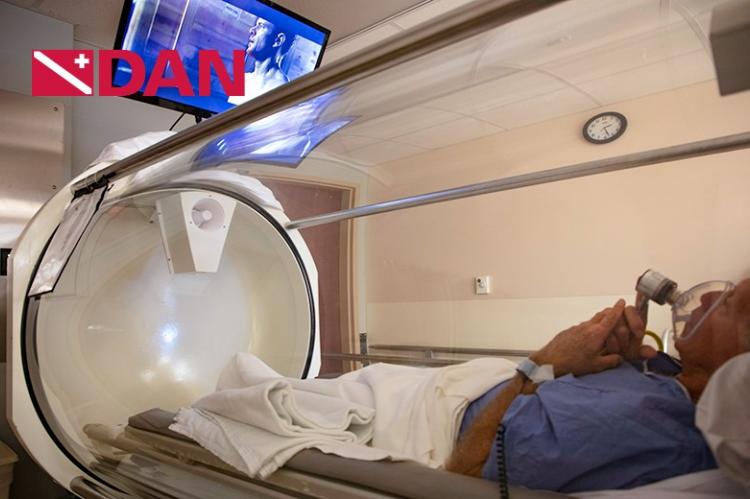DAN joins UHMS and others to promote increased 24/7 Chamber availability
Press Release
DURHAM, NC – September 30, 2020 – Although there are approximately 1,300 hyperbaric chamber facilities in the U.S., fewer than 10 percent of these are available to provide emergency hyperbaric oxygen (HBO) treatments.
About:
This state of affairs is the result of a shift in the past 20 years in which hospitals have sought to reduce operating costs by ceasing to offer emergency hyperbaric treatments.
Fewer facilities available for emergencies means longer delays to treatment, and unfortunately for divers — as well as people suffering from carbon monoxide poisoning, certain soft tissue infections and various other maladies — treatment delays can lead to permanent neurological injuries and even death. In response to this situation, DAN has joined the Undersea and Hyperbaric Medical Society, the American College of Emergency Physicians and other organizations in drafting and sending a letter to various federal and state government officials in the U.S. The purpose of this outreach is to work toward increased access to hyperbaric facilities, which can provide lifesaving care.
The organizations have proposed several approaches to increasing the availability of hyperbaric centers in emergencies and offered strategies to help incentive these lifesaving programs. Among the strategies are special consideration of emergency facilities by Medicare, Medicaid and private insurers; incentives for military hyperbaric facilities to be available for civilian patients; possible liability limitations for participating facilities; and direct grants. Federal support is critical to ensure these programs not only grow in prevalence but also maintain adequate funding for fellowship education, which ensures there will be future practitioners of hyperbaric medicine.
With this letter, the organizations are seeking to initiate conversations regarding this deficiency in the U.S. health care system and increase visibility of this important topic.


